Alumni
Alumni Licensure
Education Verification Form
The Education Verification form for MD state licensure is now posted on the General Forms page (GC is 3rd section down) on the Maryland Board of Physicians website. It was also announced at the MDCGC webinar on 10/6/23.
Instructions
- Please complete part one and email the form to mgcprogram@som.umaryland.edu.
- We will complete part two and return the form to the Maryland Board of Physicians.
Questions?
Where Are We Now - Alumni Testimonials
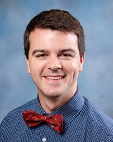
Ryan Kuehl
MGC 2019
I graduated from the University of Maryland MGC Training Program in May of 2019. I accepted a position as a pediatric genetic counselor at Saint Peter’s University Hospital in the Department of Medical Genetics and Genomic Medicine shortly after graduating. Through this role, I work with individuals and families seeking genetics services for a variety of indications, including neurodevelopmental concerns (i.e. autism, seizures), positive newborn screening results, craniofacial differences, and prenatal ultrasound abnormalities.
Since graduating, I have developed an interest in metabolic disorders, specifically lysosomal storage disorders. Due to this interest, I have been enrolled in a Lysosomal Storage Disorder Fellowship program through our institution that has allowed me to learn more about these disorders, their treatment, and the patient population. I am also involved in the coordination and maintenance of two gene therapy clinical trials for which my institution is a dosing site. These clinical trials are aimed at treating individuals with mucopolysaccharidosis type II and GM1-gangliosidosis. In addition to my clinical responsibilities, I am a student-rotation supervisor and lecturer for the Rutgers University Genetic Counseling Master’s Program.
The training I received from the faculty and staff at the University of Maryland MGC program provided me with the tools to become a successful genetic counselor and the confidence to take on new responsibilities. I still refer to lecture slides and information I learned while attending the MGC program to educate patients and families as well as the next generation of genetic counselors. I attribute my ability to grow in medical genetics knowledge and psychosocial skills at this point in my career to the vast curriculum and activities that I participated in while studying at the University of Maryland. The University of Maryland MGC program also gave me a network of brilliant genetic counselors, colleagues, and friends that I know I can rely on. I am truly grateful to have been trained in such a comprehensive program!
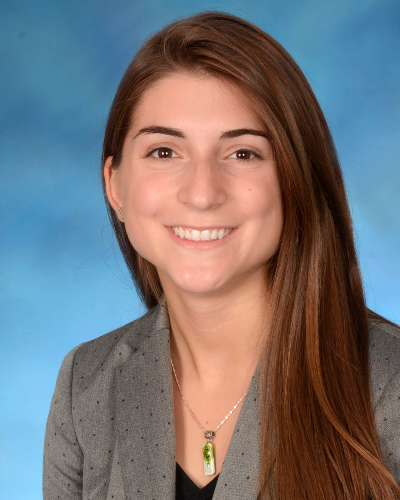
Emma Perez
MGC 2019
I am a genetic counselor/project manager at Brigham and Women’s Hospital in Boston with the Personalized Medicine Department. I manage the Mass General Brigham eMERGE project site focused on return of polygenic risk scores (PRS) to patients and their primary care providers. I oversee participant and provider education, clinical decision support, recruitment and operations, electronic health record integration, return of results, and outcomes analyses. Additionally, I return secondary findings to participants enrolled in the Mass General Brigham Biobank. Lastly, outside of my genetic counselor/project manager role, I consult with a polygenic risk score company on PRS clinical considerations, provider education, and clinical reporting.
In graduate school, I never imagined myself working in a research role or consulting, but I get to learn new skills every day while staying up to date with advances in genomic medicine. Although I only interact with patients for about 10 percent of my time, my genetic counseling skills are put to good use every day when working with programmers, primary care providers, and my research assistants. The Maryland program prepared me to succeed in this role by building confidence in myself in the traditional genetic counselor role, but also for anything I set my mind to. I'm proud to be an MGC graduate for so many reasons: The MGC legacy, the quality of education, and most importantly, the long-standing relationships built with my cohort, the faculty, and the admins who make it all possible!
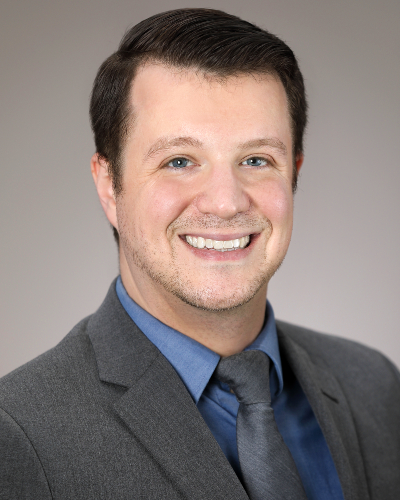
Mike Kamen
MGC 2020
I am currently a genetic counselor at the National Institutes of Health as part of the NIAID Centralized Sequencing Program in Bethesda, Maryland. From the perspective of a somewhat non-traditional, relatively older student looking to change careers, I appreciated that the University of Maryland MGC Training Program encouraged me to go outside of my comfort zone and to follow the mantra "trust the process."
Each aspect of the program was an essential part of my development as a genetic counselor. The challenging coursework set me up with a strong baseline of knowledge to pass the board exam. The highly organized student thesis project led to my manuscript being published by the Journal of Genetic Counseling and set me up with a strong foundation to pursue research as part of my career. As a bonus, the public speaking classes helped me to develop the ability to ultimately present my research at multiple genetics conferences. The clinic rotations with dedicated, knowledgeable supervisors provided me with the experience necessary to provide meaningful counseling to a wide variety of patient referrals. Changing careers to become a genetic counselor is one of the best decisions I’ve ever made and I will always be grateful I trusted the process at the MGC Training Program.
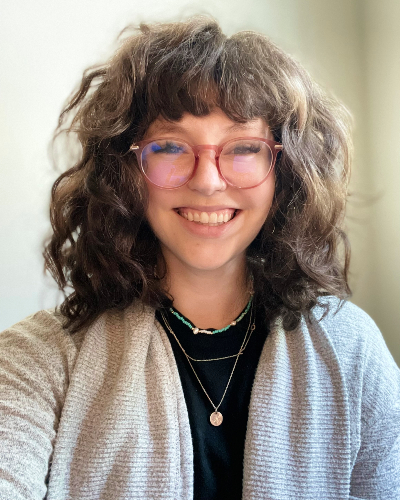
Emma Moores
MGC 2020
After graduating from the MGC program in 2020 (over Zoom, with a paper graduation cap courtesy of my partner!), I currently work as a preconception and fertility-focused genetic counselor with GeneScreen, LLC, which partners with fertility centers all over the United States to provide genetic counseling for patients who are undergoing fertility treatment for a variety of reasons. (One of my goals from my graduate training was to bring more genetic counseling to the Midwest – and I am happy to say that I feel like I am making strides in that arena!) I am continually working to make my language choices inclusive for all patients that I encounter, to give patients the tools to truly understand and utilize their genetic information, and to support our genetic counseling clinical team.
Additionally, I have been lucky enough to serve as an advisor for multiple graduate students on their theses, while also being able to supervise students who rotate with GeneScreen to learn more about the preconception field. While I am consistently challenged and never bored by the demands of an ever-evolving field, the MGC program more than adequately prepared me to face these challenges and navigate them with confidence that even if I don’t know the answer, I have the knowledge and tools to figure it out. And if I can’t figure it out, I am always willing to ask for help from the many incredibly talented and kind genetic counselors whose expertise and experience are invaluable.
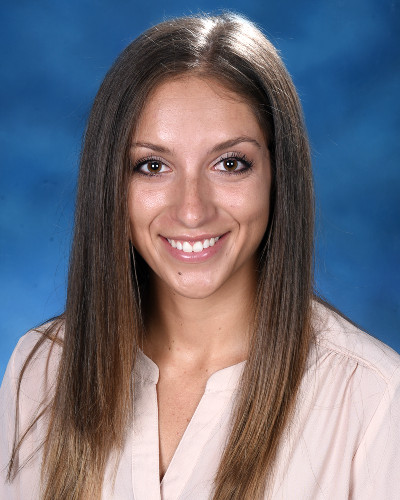
Sydney Richards
MGC 2022
Since graduating from the University of Maryland’s MGC Training Program in 2022, I have been practicing as a prenatal genetic counselor at VHC Health’s Maternal Fetal Medicine Office in Arlington, VA. In addition to counseling patients in a clinical setting, I have had the opportunity to take on supervision roles and work toward publication of my independent study project. The MGC Training Program emphasized the importance of welcoming patience, flexibility, growth and challenges in this dynamic field, and has provided me with the knowledge and capability to become the genetic counselor that I am today.
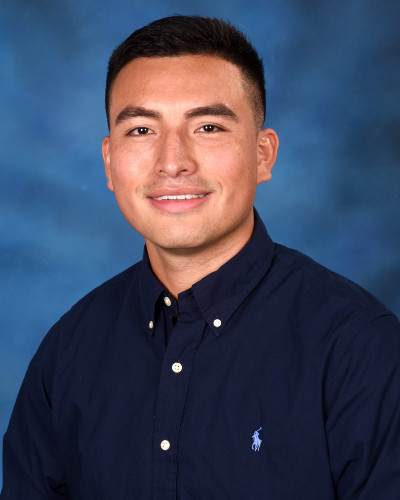
Darwin Argueta
MGC 2023
I was born and raised in Houston, Texas, where I completed my bachelor's degree in biology. After graduating from the MGC program, I decided to go back to Houston to work for Baylor College of Medicine as a clinical adult and cancer genetic counselor for Baylor’s McNair Campus and the Smith Clinic under Harris Health. One of the most exciting aspects of this position is being able to counsel a significant number of patients who speak Spanish as a first language and have limited English proficiency. As a result, sessions with patients with these demographics have been expedited while, at the same time, providing them with the same quality care as we would our other patients.
I am grateful that the MGC program placed me in rotations where I could work with supervisors who spoke Spanish and with patient populations that needed Spanish counseling. Not only was I able to practice my Spanish counseling, but I also had supervisors who were able to empathize with the struggles I faced when doing so. Having gained knowledge and built relationships in a clinically oriented and well-rounded program, I now feel confident to pursue a fulfilling and mentally stimulating career. The importance of diverse experiences in my training and rotations has taught me to embrace opportunities and apply valuable lessons in both my career and life.
